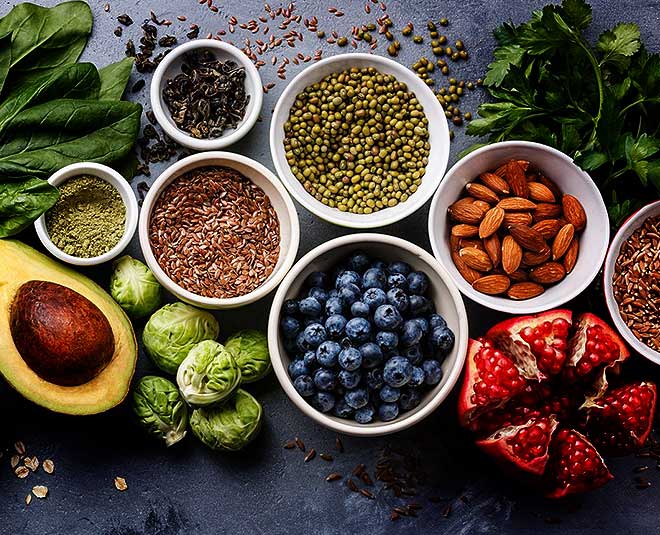Introduction to Superfoods
Superfoods have taken the health world by storm, and as we approach 2025, their popularity is only set to rise. These nutritional powerhouses are packed with vitamins, minerals, and antioxidants that can significantly enhance your overall well-being. Whether you’re looking to boost your energy levels or support a healthier lifestyle, incorporating superfoods into your meals can be a game-changer.
In this blog post, we’ll explore what makes these foods so special and introduce you to five superstars of the superfood world for 2025. Get ready to discover how simple additions to your diet can bring about transformative health benefits!
Why Superfoods are Important for Your Health
Superfoods pack a powerful punch when it comes to nutrition. These foods are rich in vitamins, minerals, and antioxidants that our bodies crave. They help combat oxidative stress and boost overall well-being.
Incorporating superfoods into your diet can enhance immune function. A stronger immune system means fewer sick days and more energy for daily activities.
Moreover, many superfoods support mental health. Nutrients found in these foods can improve mood and cognitive function, paving the way for a sharper mind.
These nutritional powerhouses also promote heart health. With benefits like reducing cholesterol levels and improving blood circulation, they play a crucial role in maintaining cardiovascular wellness.
The best part? Superfoods offer variety to your meals without sacrificing flavor or enjoyment. Each bite is not just delicious but also contributes positively to your lifestyle choices.
Top 5 Superfoods for 2025:
Moringa is gaining popularity as a powerhouse of nutrients. Packed with vitamins, minerals, and antioxidants, it’s easy to see why this leafy green is making waves in health circles. Its versatility means you can enjoy it in smoothies or sprinkle it on salads.
Seaweed isn’t just for sushi anymore. This oceanic treasure is rich in iodine and omega-3 fatty acids. Plus, its unique flavor adds depth to various dishes while promoting gut health.
Jackfruit provides a delicious alternative for those seeking plant-based options. With its meat-like texture, jackfruit works beautifully in tacos and curries, delivering fiber and essential nutrients without the guilt.
Sorghum’s gluten-free status makes it an attractive grain choice. High in protein and iron, this ancient grain can be used as a base for salads or served like rice.
Kelp offers more than just culinary appeal; it’s brimming with trace minerals that support overall wellness. Incorporate kelp into your diet through soups or snacks for a nutritious boost.
A. Moringa
Moringa, often dubbed the “miracle tree,” is gaining traction as a superfood in 2025. This leafy green powerhouse boasts an impressive nutrient profile. Packed with vitamins A, C, and E, it’s a great ally for boosting immunity.
Beyond its vitamin content, moringa contains essential amino acids. These building blocks are crucial for muscle health and repair. It’s no wonder fitness enthusiasts are adding moringa to their smoothies and protein shakes.
The antioxidant properties of moringa help combat oxidative stress in the body. This can lead to healthier skin and reduced aging signs. It also has anti-inflammatory benefits that may alleviate chronic pain conditions.
Incorporating moringa into your diet is simple—try powders or capsules if you’re on-the-go. Alternatively, fresh leaves can be added to salads or soups for an extra nutritional kick. Your meals will not only taste better but nourish you deeply too.
B. Seaweed
Seaweed is a powerhouse of nutrients that often flies under the radar. This aquatic plant is packed with vitamins, minerals, and antioxidants essential for maintaining optimal health.
Rich in iodine, it supports thyroid function and regulates metabolism. Seaweed also contains omega-3 fatty acids, which are known to promote heart health while reducing inflammation.
One of its standout features is its ability to absorb minerals from seawater. As a result, seaweed boasts an impressive array of trace elements like calcium and magnesium.
Incorporating seaweed into your diet can be easy and delicious. Whether through sushi rolls or as a salad garnish, its unique umami flavor adds depth to various dishes.
Not only does it benefit individual health, but seaweed farming has environmental perks too. It’s sustainable and helps combat oceanic carbon levels while providing habitats for marine life.
C. Jackfruit
Jackfruit is making waves as a superfood in 2025. This tropical fruit isn’t just delicious; it’s packed with nutrients that can elevate your health.
Rich in vitamins A and C, jackfruit supports immune function and skin health. It contains potassium, which helps regulate blood pressure. Plus, the fiber content promotes digestion.
One of its standout features is versatility. Jackfruit can be used in savory dishes or sweet treats alike. When unripe, it has a texture similar to pulled pork—making it a favorite among plant-based eaters.
Another bonus? Jackfruit is low in calories yet filling. This makes it an excellent choice for those looking to maintain or lose weight without sacrificing flavor.
With its growing popularity, you’ll find more recipes featuring this powerhouse fruit online and at local markets soon enough!
D. Sorghum
Sorghum is a versatile grain that has been gaining popularity in recent years. Originally cultivated in Africa, it’s now recognized as a nutritional powerhouse around the globe.
This gluten-free option is rich in protein and fiber. It helps promote digestive health and keeps you feeling full longer. Sorghum also boasts an impressive array of vitamins and minerals, including iron, magnesium, and B vitamins.
It can be used in various forms—whole grains, flour, or syrup—and easily incorporates into many dishes. From wholesome breakfast porridge to delicious baked goods or even savory pilafs, sorghum adds texture and flavor to your meals.
Another standout feature? Its drought-resistant nature makes it an environmentally friendly choice for sustainable agriculture. Embracing sorghum not only benefits your health but also supports eco-conscious eating habits.
E. Kelp
Kelp is a fascinating superfood that thrives in ocean waters. This sea vegetable packs a nutritional punch, making it an ideal addition to any health-conscious lifestyle.
Rich in vitamins and minerals, kelp is particularly famous for its high iodine content. Iodine supports thyroid function, which plays a crucial role in regulating metabolism. That’s right—adding kelp could help keep your energy levels steady.
Beyond iodine, kelp contains antioxidants that combat free radicals. This can lead to improved skin health and overall vitality. Its unique flavor also lends itself well to various dishes, from soups to salads.
For those looking to reduce their carbon footprint, kelp farming has minimal environmental impact compared to land-based crops. Incorporating this versatile food into your diet not only benefits you but the planet as well.
How to Incorporate Superfoods into Your Diet
Incorporating superfoods into your diet can be easy and enjoyable. Start by adding a spoonful of moringa powder to your morning smoothie. It blends well with fruits, boosting nutrition without altering flavor.
Seaweed snacks are another great option. They provide a salty crunch that’s perfect for afternoon cravings. Just pop them in your bag for an on-the-go treat.
Jackfruit makes for a fantastic meat substitute in savory dishes. Try it shredded in tacos or curries; its texture is satisfying and filling.
Cooking with sorghum offers versatility too. Use it as a base for salads or grain bowls, introducing new textures and flavors to your meals.
Don’t forget about kelp! Add it to soups or stir-fries for an umami kick while enhancing the nutrient profile of everyday dishes.
Benefits of Eating Superfoods
Eating superfoods can significantly boost your overall health. These nutrient-dense foods are packed with vitamins, minerals, and antioxidants that support various bodily functions.
Incorporating superfoods into your diet can enhance your immune system. With increased immunity, you’ll be better equipped to fend off illnesses.
Many superfoods also promote heart health. Foods rich in omega-3 fatty acids and fiber help maintain healthy cholesterol levels. This reduces the risk of cardiovascular diseases.
Additionally, several superfoods have anti-inflammatory properties. They may help alleviate chronic pain or discomfort associated with conditions like arthritis.
Superfoods are often linked to improved mental clarity as well. Nutrients found in these powerhouses support brain function and concentration.
Many people enjoy weight management benefits when they eat superfoods regularly. Their high fiber content keeps you feeling fuller for longer while providing essential nourishment.
Potential Risks and Precautions with Superfoods
While superfoods offer numerous health benefits, they aren’t without risks. Some individuals may experience allergic reactions to certain superfoods. It’s essential to be cautious if you have known allergies.
Additionally, consuming excessive amounts of specific superfoods can lead to adverse effects. For instance, seaweed is high in iodine; too much can disrupt thyroid function. Moderation is key when adding these nutrient-dense foods into your diet.
Certain superfoods might interact with medications as well. Always consult a healthcare professional before making significant dietary changes or introducing new superfood supplements.
Sourcing matters. Not all products labeled as “superfood” are created equal. Be sure to choose organic and sustainably sourced options whenever possible for the best quality and safety.
The Future of Superfoods
As we look ahead, the future of superfoods appears vibrant and promising. With a growing awareness surrounding health and nutrition, these nutrient-dense foods are set to play an integral role in our diets. More people are seeking natural options that enhance their wellbeing, which opens the door for innovative products.
Sustainable farming practices will likely shape how superfoods are cultivated and consumed. As environmental concerns rise, there’s a push towards sourcing ingredients that have minimal ecological impact. This trend may lead us to explore diverse regions around the globe for new potential superfoods.
Research into the benefits of various foods continues to evolve rapidly. Scientists are uncovering more about how these powerhouse ingredients can combat modern health issues like obesity and chronic diseases. Expect to see personalized nutrition plans based on individual needs as technology advances.
With creativity in food preparation on the rise, incorporating superfoods into everyday meals should become easier than ever. From smoothies to snack bars, innovation will help keep our diets exciting while still prioritizing health.
As we embrace this ongoing journey toward better eating habits, it’s clear that superfoods will remain at the forefront of lifestyle choices aimed at enhancing overall wellness well into 2025 and beyond.














